
Kazakhstan’s national airline Air Astana plans to increase the number of Kazakh pilots in the company, Anthony Regan, the company’s Senior Vice President for Operations, is quoted by Tengrinews as saying at the graduation ceremony of the Kazakh pilots from Atlantic Flight Training Academy.





Kazakhstan’s national airline Air Astana plans to increase the number of Kazakh pilots in the company, Anthony Regan, the company’s Senior Vice President for Operations, is quoted by Tengrinews as saying at the graduation ceremony of the Kazakh pilots from Atlantic Flight Training Academy.
On February 12, nine ab-initio pilot training cadets of Air Astana successfully graduated from Atlantic Flight Training Academy (AFTA), one of Europe’s leading pilot training academies based at Cork International Airport, Ireland. The Academy has been training pilots for almost 20 years and around 1, 500 cadets have already graduated from it.
Another group of seven cadets from Kazakhstan will travel to Ireland for training in the beginning of March 2015.
AFTA Executive Director Mark Casey, Air Astana Senior Vice President for Operations Anthony Regan and Air Astana Director for Operational Training Filippos Siakkas attended the graduation ceremony.
According to Air Astana Senior Vice President for Operations Anthony Regan, 420 pilots are employed in Air Astana, but the airline is planing to bring this number to 500 by 2018-2020. Foreigners constitute 17 percent of the total number of pilots working in the Kazakh airline.
“This percentage can be slightly larger or smaller, depending on the economic situation. For example, if a devaluation occurs, we have to reduce the number of flights and hence, the number of pilots, and vice versa. The main goal of this program (ab-initio program) is to compensate for the lack of highly qualified pilots. This problem is typical for many airlines. Every year there is a demand for 14,000-15,000 pilots around the world,” Anthony Regan said.
The wages of Kazakh pilots is not the same as the wages of their foreign colleagues, he admitted. It usually depends on the experience and the pilot's number of flight hours. There is also a system of surcharges for additional skills and knowledge of the pilots.
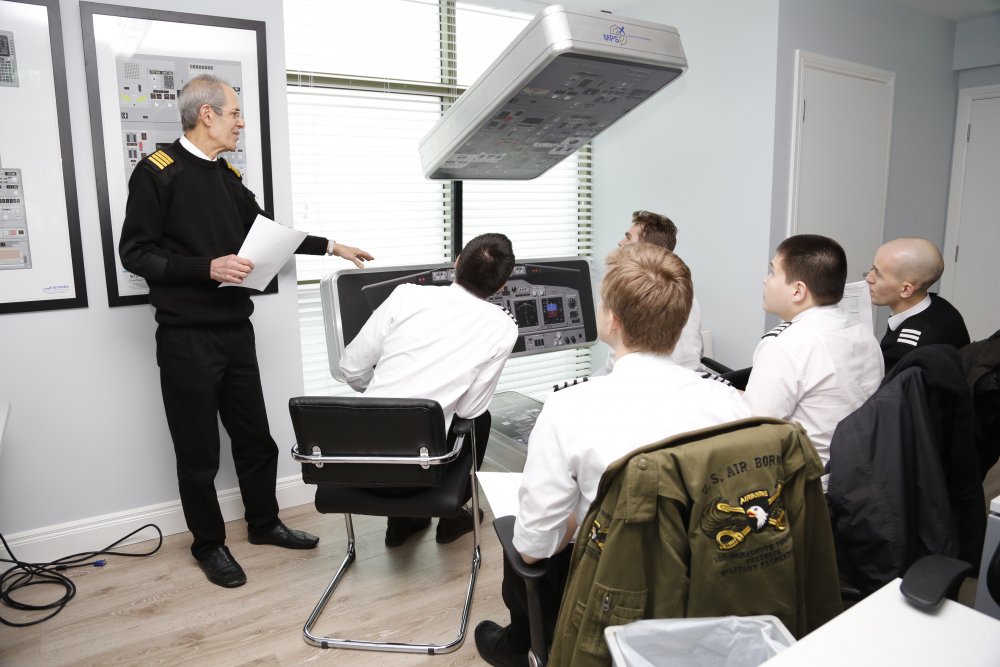
Kazakhstan's cadets during a classes in AFTA.
"We are very proud to train pilots from around the world. As for the cadets from Kazakhstan, they are very smart, they all have interesting personalities. We get along very well in terms of training - they are very diligent. I have no doubt that they will become excellent professionals in their fields," the chief instructor of the Academy Daniel Lynch said.
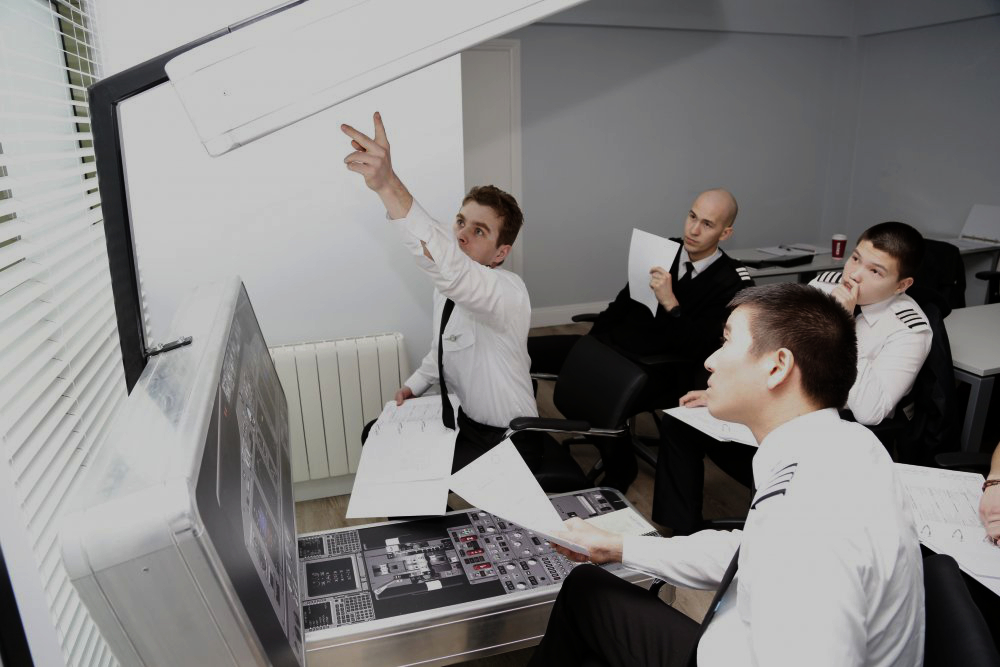
Kazakhstan's cadets during a classes in AFTA.
The training programme in the academy lasts around 1.5 - 2 years. During this time, cadets take theoretical and practical flight courses, pass 14 examinations and spend around 200 hours piloting different planes. After that the graduates receive a commercial pilot license and then, undertake an in-depth specialised aircraft type training course, before being awarded the rank of First Officers.
According to the press service of Air Astana, this pilot training programme launched in 2009 has already produced 150 qualified cadets, who are now copiloting Airbus (75 pilots), Boeing (39 pilots ) and Embraer (23 pilots) fleets.
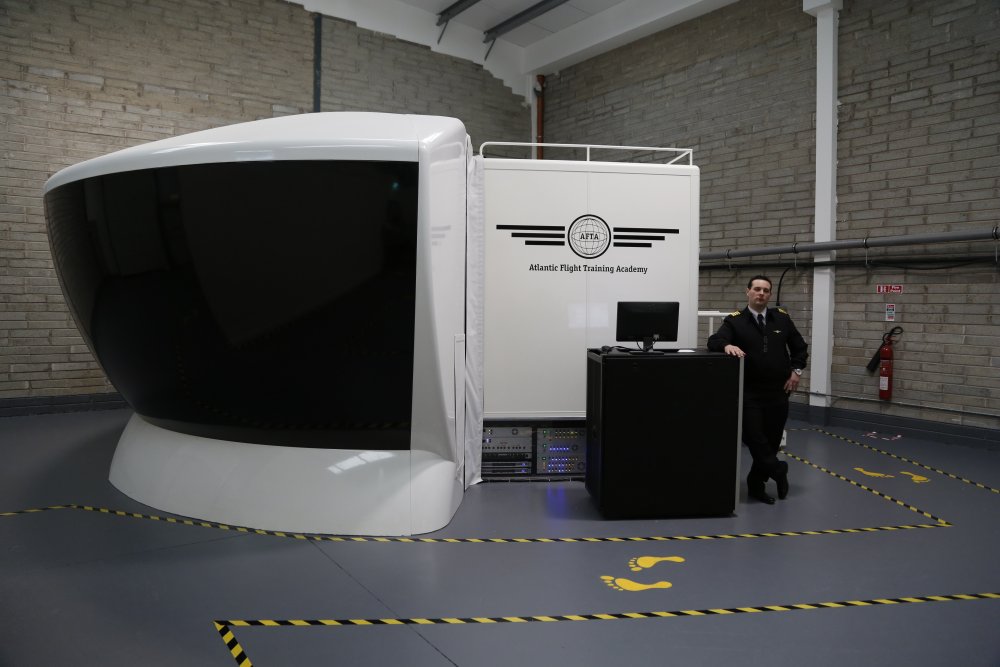
Flight simulator in the Academy.
According to the academy's graduate from Kazakhstan Evgeny Kabysh, it is not that difficult to get there, but styding requires considerable effort. Those who wish to become a pilot must first have a good level of English, pass a medical test, an interview in English first with Air Astana and then with AFTA, several psychological tests and Logics, Math and Physics exams.


Flight simulator in the Academy.
"Modern aircrafts are arranged in such a way that two pilots control it. We are taught to work as a team, so that we can interact with colleagues from different countries without any problems. (...) We are not just piloting simulators, but also learn to act in emergency situations like an engine failure, a strong side wind, ice on the runway and so on. (...) I would like to dispel the myth that in order to become a pilot, you need to be in aviation in the first place. We have many cadets, who graduated from universities with various degrees. Someone were programmers, others were translators. But then they decided to become pilots and study here. However, this profession requires constant development and learning of new things. There is always a place for development. And, of course, being a pilot is a lifestyle choice. A man has to be keen on sky," Evgeniy Kabysh said.
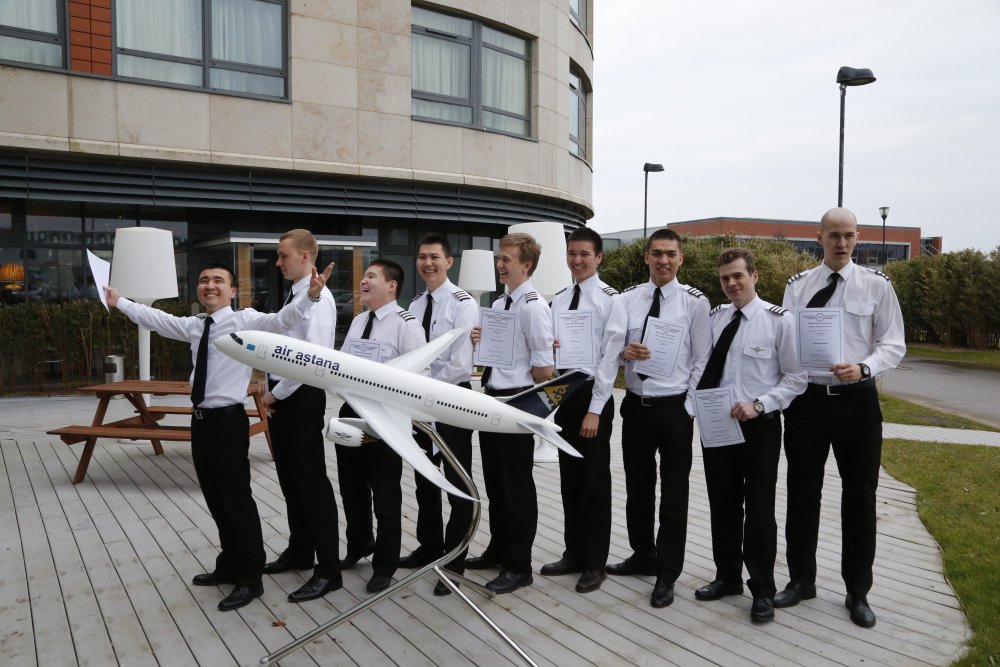
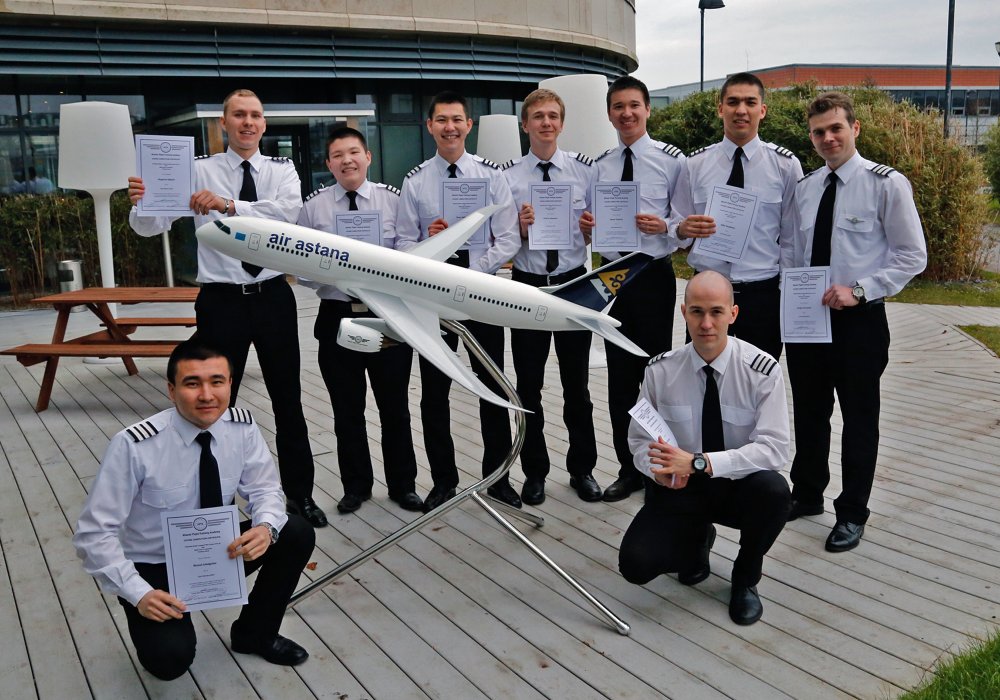
Graduates of the AFTA from Kazakhstan.
Photos ©Vladimir Prokopenko
Reporting by Vladimir Prokopenko, writing by Assel Satubaldina, editing by Tatyana Kuzmina

 +7 (777) 001 44 99
+7 (777) 001 44 99















































